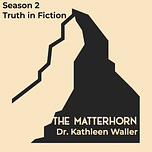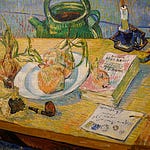What is the purpose of love letters? What is the language of love?
What does being political have to do with emotions?
What is the power of metaphor? The danger?
Today’s podcast is part of a series on the conceptual topic of letter writing. You can also listen to the podcast via Apple or Spotify or in the Substack app. A full AI-generated transcript can be accessed on the desktop version.
For these eight weeks, I’ll bring you texts related to this topic. This series is an experiment for a new podcast season that I recorded to sync up with the holiday letter season and the epistolary form of my latest novel. Stay tuned for more fiction, word sketches, and cultural essays in 2025.
I’d love to hear what you think in the comments. Feel free to ask questions or share text ideas, even your own writing. Thank you!
The imperative of reading is metaphorically embodied and promoted by the postman himself. Mario, who, upon Neruda’s request, reads one of the letters addressed to the poet that he delivers, secured his proximity to Neruda and his mail by claiming he could read, that he was literate. However, as the narrative progresses, the postman reveals his illiteracy and the misreading of his world which leads to his untimely death. Mario’s metaphoric illiteracy is illuminated by his cinematically textualized consciousness which compels him to plagiarize Neruda’s poetry in order to seduce and procreate with Beatriz. Neruda’s advice correlates with his poem “Ode to the Sea.” Becoming a poet requires one not simply to see, but to read or interpret the “movement of the sea,” or of the seen/scene, and to read it as insisting that metaphor is all pervasive in everyday life, that it is not simply a matter of words or language, but of conceptual thinking and human action as well. In order to become a poet, a writer, one must first become a reader of the world and looking at language one must perceive, as Darwin, Neruda, Shelley, Nietzsche, and Heidegger did, that our conceptual system is full of inescapable figurality, that the way we think, what we experience, and what we do every day is, ineluctably, to a considerably ambiguous degree, a matter of figurality.
Biopoetics and Hermeneutics: The Postal Metaphor in Il Postino (David S. Randall)
Keywords:
Neruda
blending fact and fiction
metaphor
politics
love
art as life’s work
Texts:
novel - Ardiente paciencia
Randall, David S. “Biopoetics and Hermeneutics: The Postal Metaphor in Il Postino.” Interdisciplinary Literary Studies 19, no. 3 (2017): 345–71. https://doi.org/10.5325/intelitestud.19.3.0345.













Share this post